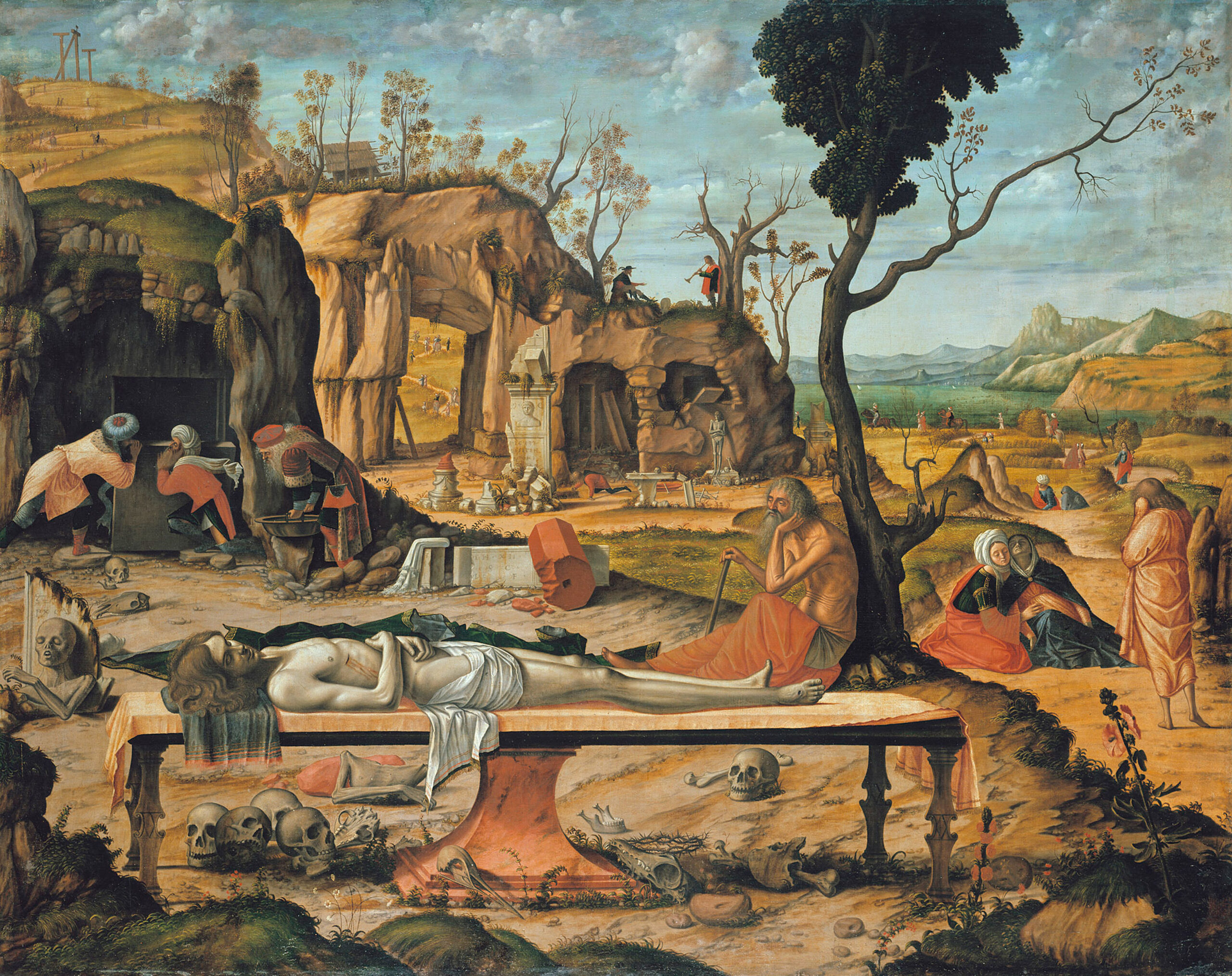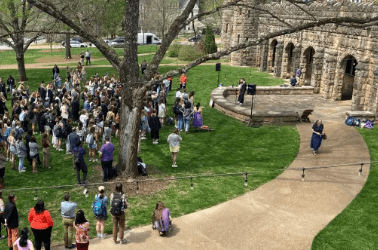
Moving On from Trauma When Perpetrators Can’t Understand
“Father, forgive them, for they know not what they do.”
Jesus as he was being crucified, encapsulates a profound truth about the nature of harm and healing. Very often, those who hurt us most deeply are acting out of their own unresolved wounds, defenses, and blindspots. They literally don’t understand the impact of their behavior, because they lack the self-awareness, empathy, or emotional capacity to truly take in the devastation they’ve caused.
This is a bitter pill to swallow for many trauma survivors. It’s natural to long for some kind of reckoning – for our abusers to have an “aha” moment where they finally get it, apologize sincerely, and make amends. We want our suffering to be seen, acknowledged, and properly grieved by those responsible. The absence of this validation from the “other side” can feel like a terrible injustice, compounding the original injury.
So how do we come to terms with the painful reality that such understanding and contrition may never come? How do we grieve this “secondary loss” and refocus our energy on our own healing, rather than waiting for a change of heart that’s unlikely to manifest? Let’s break this down step-by-step.
Understanding the Limitations of Traumatized Psyches
First, it’s important to recognize that most people who seriously harm others are operating from a place of profound emotional impairment. They may have experienced severe trauma, neglect or attachment disruptions in their own childhoods which stunted their capacity for empathy, warped their sense of appropriate boundaries, or left them stuck in destructive patterns of self-soothing.
This damage doesn’t excuse abusive choices, but it does help explain the “empathy gap” between perpetrator and victim. Someone who never learned to soothe their own pain skillfully, to productively process vulnerable emotions, or to consider others’ inner worlds is not well-equipped to appreciate the wounding effects of their actions. Defensive denial, justification, and minimization of misdeeds are all hallmarks of the traumatized mind.
Accepting Apologies You’ll Never Get
Given the psychic limitations of many abusers, waiting for them to “wake up” and take full responsibility can become its own kind of suffering, a way we unintentionally prolong our victimization. As long as we’re orienting towards them for the validation and grief we need, we remain stuck, resentful, and dependent.
The task, then, is to radically accept who they’ve shown themselves to be and detach – not necessarily through forgiveness (which has to be earned), but by internally validating our own experience so we’re not relying on their agreement anymore. We have to become, in a sense, our own good parents, reparenting ourselves with the soothing, affirmation and mirroring that was missing.
This is where therapeutic support is so vital. In therapy, we grieve the empathic failures and betrayals of our original attachments, while forging a new, nourishing bond with someone who can see, name and honor our pain. The relationship itself becomes a corrective experience, helping to rebuild the sense of mattering and deserving care that was undermined by trauma.
Over time, we internalize the healing rhythms of attunement, recognition and compassionate holding exemplified by the therapist. This frees us to “accept the apology we’ll never get” from the actual perpetrators. We come to a place of resolving the past without their participation, drawing from inner and therapeutic resources to heal old attachment wounds.
Metabolizing the Grief
This resolution doesn’t happen overnight, of course. It requires surfing wave after wave of grief, feeling it all fully. We have to mourn the heartbreak of realizing that those who should have protected us instead hurt us, that they likely can’t meet us in our pain now anymore than they could then.
There’s a profound loneliness to this grieving – feeling so alone with wounds that are invisible to their creators. It takes tremendous ego strength and spiritual groundedness to keep choosing that solitary confrontation with our deepest pain without going numb, bitter or collapsing into despair.
Our culture doesn’t teach us well how to honor this kind of grief. There’s often pressure to “forgive and forget”, “move on”, not dwell on the past. But trauma survivors need ample space, time and support to learn how to hold their heartbreak with tenderness, to metabolize the undigested energies of violation and neglect until they transform into embodied wisdom and self-love.
The Risk of Repetition
This metabolizing is crucial not only for freeing ourselves to live more fully, but also for breaking cycles of abuse. One devastating reality of complex trauma is that many survivors do go on to repeat some of the same boundary violations they once experienced, often totally dissociated from the parallels.
Psychologically speaking, this reenactment arises from the human tendency to “act out what we haven’t worked through.” When our own wounds remain unprocessed, we’re more likely to impulsively take them out on others, however unintentionally. It takes immense self-awareness and humility to catch these relational “blind spots” and bring them into consciousness for healing.
To be clear, an abusive childhood never justifies or excuses adult perpetration. All of us are responsible for pursuing healing and ensuring we don’t pass on our damage. At the same time, acknowledging how trauma begets trauma softens the brittle “good victim”/”bad perpetrator” binary. We’re all capable of both, based on how skillfully we’ve processed our pain.
Forgiveness vs. Release
As we deepen in recovery, we may find that while full forgiveness is not accessible (or morally appropriate), we can reach a place of release. We can recognize that however egregiously they treated us, our abusers were likely broken people doing their best with limited tools. This doesn’t absolve them of responsibility, but it does restore some humanity.
Crucially, we can work towards releasing the toxic resentments we carry not for their benefit, but for our own wellbeing and freedom. Chronic anger, however righteous, corrodes the soul if we hold it too tightly for too long. Releasing others is ultimately a gift to ourselves, a choosing of inner peace over endless wars we can never win against people incapable of showing up for real healing.
Moving On, But Never “Over”
Paradoxically, this release becomes more possible the more we allow our grief, tending to it with exquisite attentiveness. We don’t move on by overriding our heartache, but by diving to its depths with courageous presence again and again, until it loosens its grip. Trauma isn’t a wound we “get over,” but one we get to know intimately, befriending until it no longer defines us.
“Moving on” is an imperfect, nonlinear journey. You’ll likely revisit many stages over time, be retriggered into old victim/perpetrator feelings by new hurts. With practice, you’ll move through these cycles with more resilience, more capacity to resource yourself with support and perspective.
There will be moments of revelation where you glimpse your absolute innocence, the part of you untouched by others’ blindness and cruelty. You’ll taste the sweetness of inhabiting your true power, free from the illusion that your abusers ever dictated your worth. You’ll feel your heart break open into a stronger love that holds space for the suffering on both sides.
This is the invitation of trauma recovery – to alchemize pain into wisdom, to widen your inner landscape such that you can touch your woundedness with limitless compassion while refusing to let it run your life anymore. It’s possible. Not easy, but possible. And so worth the messy, sacred work of reclaiming all of who you are.
Resources for Grief in Alabama
1. Community Grief Support (Birmingham, AL)
- Services: Provides free individual bereavement counseling, support groups, and community education.
- Address: 400 Vestavia Parkway, Suite 131, Birmingham, AL 35216
- Contact: 205-870-8667
- Website: communitygriefsupport.org
2. The Amelia Center at Children’s of Alabama (Birmingham, AL)
- Services: Offers professional counseling for children (age 5 and above), teens, and parents grieving the death of a loved one. Support groups are also available.
- Website: childrensal.org/services/amelia-center
3. GriefShare Support Groups
- Services: Grief recovery support groups meeting weekly in various locations across Alabama, including Birmingham.
- Website: griefshare.org
4. Hospice of Alabama Bereavement Support
- Services: Provides bereavement support to patients’ families for up to 13 months following a death, ensuring families have the necessary support during their grieving process.
- Website: hospiceofalabama.org/bereavement.php
5. Hospice Family Care Bereavement Support Groups (Huntsville, AL)
- Services: Offers bereavement support groups for adults, meeting on the 2nd and 4th Wednesdays at 1 p.m. at the Huntsville/Madison County Senior Center.
- Address: 2200 Drake Avenue, Huntsville, AL 35805
- Website: hospicefamilycare.org/grief-support
6. Shepherd’s Cove Hospice Grief Support Groups
- Services: Committed to helping individuals of all backgrounds through the death of a loved one, offering resources to facilitate healing during the grief journey.
- Website: shepherdscove.org/grief-support-groups
7. Hospice of North Alabama Bereavement Program
- Services: Offers personalized bereavement support to family members of patients and others affected by the grieving process.
- Website: hospiceofnorthalabama.com/services/bereavement-program/
8. Sparrow Counseling (Birmingham, AL)
- Services: Provides grief counseling to help individuals navigate the pain of loss, offering a patient guide to walk with you through this challenging time.
- Website: sparrowcounsel.com/grief-loss-counseling-birmingham-online-alabama
9. Thriveworks Grief Counseling (Birmingham, AL)
- Services: Offers grief and loss counseling to help individuals manage and work through their grief with the support of trained professionals.
- Website: thriveworks.com/birmingham-therapy/grief-loss-counseling/
10. University of Alabama Counseling Center (Tuscaloosa, AL)
- Services: Provides counseling and self-help resources on grief and loss, recognizing that college students can experience various forms of loss.
- Website: counseling.sa.ua.edu/counseling/self-help-topics/grief-and-loss/
11. Trinity United Methodist Church Mental Health Resources (Birmingham, AL)
- Services: Offers faith-based counseling for all stages of life, including support for those experiencing grief and loss.
- Website: trinitybirmingham.com/mental-health-resources/
12. Alabama Funeral Homes Grief Support
- Services: Provides information on counseling and grief support options available in Alabama, assisting individuals in finding the help they need.
- Website: alabamafuneralhomes.com/grief-support-in-alabama/

























0 Comments